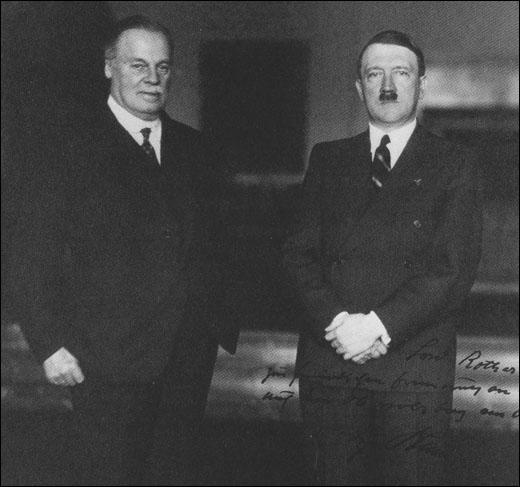On this day on 7th July
On this day in 1832 Richard Oastler makes speech against child labour. "Very often the children are awakened by the parents at four in the morning. They are pulled out of bed when almost asleep. The younger children are carried on the backs of the older children asleep to the mill, and they see no more of their parents till they go home at night, and are sent to bed."
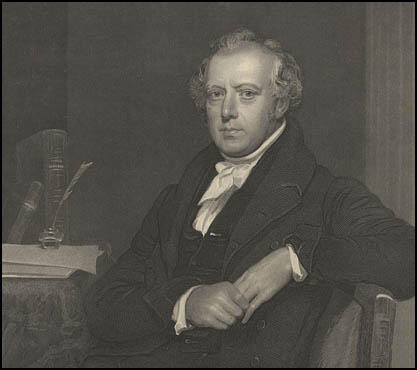
On this day in 1838, John Knight makes a speech that is reported in the Northern Star. reports that Queen Victoria an income of more than £1,000 a day. "The ministers of the government have granted the Queen an income of more than £1,000 a day while hundreds of thousands of her subjects were starving on 2d and 1d per day."
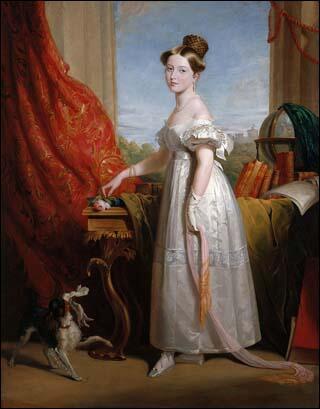
On this day in 1862 Charles Sumner attacked the decision by President Abraham Lincoln to allow Black Codes to continue.
A government organized by Congress and appointed by the President is to enforce laws and institutions, some of which are abhorrent to civilization. Take for instance, the Revised Code of North Carolina, which I have before me. "Any free person, who shall teach, or attempt to teach, any slave to read or write, the use of figures excepted, or shall give or sell to such slave any book or pamphlet, shall be deemed guilty of a misdemeanor, if a white man or woman, shall be fined not less than one hundred nor more than two hundred dollars, or imprisoned, and if a free person of colour, shall be fined, imprisoned, or whipped not exceeding thirty-nine nor less than twenty lashes.
Here is another specimen: "If any person shall willfully bring into the State, with an intent to circulate, or shall aid or abet the bringing into, or the circulation or publication, the State, any written or printed in or out of the State, the evident tendency whereof is to cause slaves to become discontented with the bondage in which they are held by their masters and the laws regulating the same, and free negroes to be dissatisfied with their social condition and the denial to them of political privileges, and thereby to excite among the said slaves and free negroes a disposition to make conspiracies, insurrections, or resistance against the peace and quiet of the public, such person so offending shall be deemed guilty of felony, and on conviction thereof shall, for the first offence, be imprisoned not less than one year, and be put in the pillory and whipped, at the discretion of the court, and for the second offence shall suffer death."
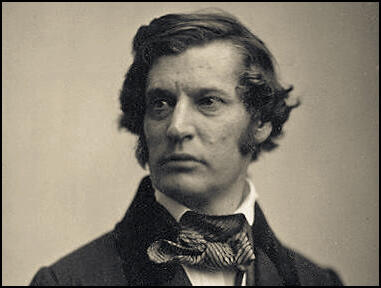
On this day in 1865 Mary Surratt, still pleading her innocence, became the first woman in American history to be executed by the federal government.
Mary Jenkins was born in in Waterloo, Maryland, in May, 1823. Educated at a Catholic female seminary in Alexandria, Virginia, she married John Harrison Surratt when she was seventeen. The couple went to live on land that he had inherited just outside of Washington at Oxon Hill. In 1851 a fire destroyed their home the couple decided to rebuild a combined home and tavern.
In 1853 Surratt purchased 287 acres of farmland in Prince George's County. He built a tavern and post office and the community eventually became known as Surrattsville. Surratt worked as the local postmaster until his death on 25th August, 1862.
In October, 1864, Mrs. Surratt decided to rent the Surrattsville property for $500 a year to an ex-policeman, John M. Lloyd, and moved to a house she owned at 541 High Street, Washington. To make some extra money she rented out some of her rooms.
During the American Civil War, her eldest son, John Harrison Surratt, joined the Confederate Army. Her other son, John Surratt, worked as an agent for the Confederacy. He met others working as secret agents including John Wilkes Booth who stayed at the Surratt's boardinghouse when he was in the area. It is not known if Mrs. Surratt knew if these men were working for the Confederacy.
On the 17th April, police officers arrived at Mrs. Surratt's boardinghouse. Lewis Powell was also at the house and the two of them were arrested and charged with conspiring to assassinate President Abraham Lincoln. When the police searched the house they found a hidden photograph of John Wilkes Booth, the man who had assassinated Lincoln at Ford's Theatre on 14th April.
Louis Weichmann, one of Mrs. Surratt's borders, and John M. Lloyd, the man who rented the tavern at Surrattsville, were also arrested and threatened with being charged with the murder of Abraham Lincoln. Kept in solitary confinement both men eventually agreed to give evidence against Mrs. Surratt in return for their freedom.
On 1st May, 1865, President Andrew Johnson ordered the formation of a nine-man military commission to try the conspirators. It was argued by Edwin M. Stanton, the Secretary of War, that the men should be tried by a military court as Lincoln had been Commander in Chief of the army. Several members of the cabinet, including Gideon Welles (Secretary of the Navy), Edward Bates (Attorney General), Orville H. Browning (Secretary of the Interior), and Henry McCulloch (Secretary of the Treasury), disapproved, preferring a civil trial. However, James Speed, the Attorney General, agreed with Stanton and therefore the defendants did not enjoy the advantages of a jury trial.
The trial began on 10th May, 1865. The military commission included leading generals such as David Hunter, Lewis Wallace, Thomas Harris and Alvin Howe and Joseph Holt was the government's chief prosecutor. Mary Surratt, Lewis Powell, George Atzerodt, David Herold, Samuel Mudd, Michael O'Laughlin, Edman Spangler and Samuel Arnold were all charged with conspiring to murder Lincoln. During the trial Holt attempted to persuade the military commission that Jefferson Davis and the Confederate government had been involved in conspiracy.
Joseph Holt attempted to obscure the fact that there were two plots: the first to kidnap and the second to assassinate. It was important for the prosecution not to reveal the existence of a diary taken from the body of John Wilkes Booth. The diary made it clear that the assassination plan dated from 14th April. The defence surprisingly did not call for Booth's diary to be produced in court.
At the trial John M. Lloyd told the court that on the Tuesday before the assassination Mrs. Surratt and Louis Weichmann visited him. Lloyd claimed that Mrs. Surratt "told me to have those shooting-irons ready that night, there would be some parties who would call for them. She gave me something wrapped in a piece of paper, which I took up stairs, and found to be a field-glass. She told me to get two bottles of whisky ready, and that these things were to be called for that night."
When Louis Weichmann testified he told the court that he had seen John Wilkes Booth, Lewis Powell, George Atzerodt and David Herold in Mrs. Surratt's house together. This supported the prosecution's claim that the boarding house was where the assassination plot had been planned.
Weichmann also testified that as far as he knew Mrs. Surratt was not disloyal to the Union cause. A large number of friends and neighbours also appeared in court and stressed that they had never head her express support for the Confederacy.
On 29th June, 1865, Mrs. Mary Surratt, Lewis Powell, George Atzerodt, David Herold, Samuel Mudd, Michael O'Laughlin, Edman Spangler and Samuel Arnold were found guilty of being involved in the conspiracy to murder Lincoln. Surratt, Powell, Atzerodt and Herold were all sentenced to be hanged at Washington Penitentiary on 7th July, 1865.
Five out of the nine members of the Military Commission, recommended that Mrs. Surratt be shown mercy "due to her sex and age". President Andrew Johnson was later to say he was never told this and he gave the order to hang the woman who he pointed out "kept the nest that hatched the egg".
On this day in 1915 Nicholas II writes letter to his wife Alexandra about Russia during the First World War.
"Again that cursed question of shortage of artillery and rifle ammunition - it stands in the way of an energetic advance. If we should have three days of serious fighting we might run out of ammunition altogether. Without new rifles, it is impossible to fill up the gaps. The army is now almost stronger than in peace time; it should be (and was at the beginning) three times as strong. This is the position we find ourselves in at present. If we had a rest from fighting for about a month, our condition would greatly improve. It is understood, of course, that what I say is strictly for you only. Please do not say a word of this to any one."
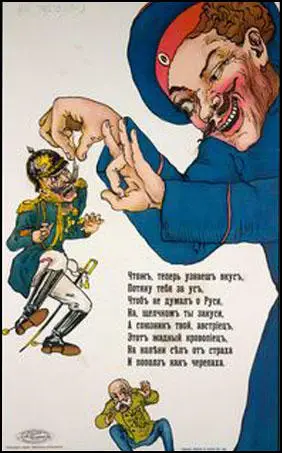
On this day in 1930 Arthur Conan Doyle died at Crowborough.
Arthur Conan Doyle, the son of Charles Doyle and Mary Foley, was born in Edinburgh on 22nd May 1859. Arthur's father was an alcoholic and the family was always short of money. At school, Arthur developed a strong interest in the books written by Sir Walter Scott and Edgar Allan Poe.
Conan Doyle studied at Edinburgh University and helped to fund his course by working as a surgeon on Hope, a 400 ton whaler on a seven month voyage to the Arctic. The following year he worked on Mayumba, a passenger ship bound for West Africa. On this voyage Conan Doyle nearly died of typhoid.
On his return, Conan Doyle set up as a doctor in Southsea, a suburb of Portsmouth. With very few patients, Conan Doyle attempted to make money by writing detective stories. His main character, Sherlock Holmes, was based on Dr. Joseph Bell, a surgeon and criminal psychologist, who lectured at Edinburgh Infirmary.
In 1891 Conan Doyle published six Sherlock Holmes stories in the Strand Magazine. The following year he was paid £1,000 for a whole series on Sherlock Holmes. Conan Doyle really wanted to write historical novels like his hero, Sir Walter Scott, and in 1893 decided to kill off Sherlock Holmes in the story, The Final Problem. However, after coming under considerable pressure from his fans, he returned to write his best known detective story, The Hound of the Baskervilles (1902).
On 2nd September, 1914, soon after the start of the First World War, the Liberal politician, Charles Masterman, the head of the War Propaganda Bureau, organised a secret meeting of Britain's leading writers. to discuss ways of best promoting Britain's interests during the war. Those who attended to discuss the best way of promoting Britain's interests during the war included Conan Doyle, Arnold Bennett, John Masefield, Ford Madox Ford, William Archer, G. K. Chesterton, Sir Henry Newbolt, John Galsworthy, Thomas Hardy, Rudyard Kipling, Gilbert Parker, G. M. Trevelyan and H. G. Wells.
All the writers present at the conference agreed to the utmost secrecy, and it was not until 1935 that the activities of the War Propaganda Bureau became known to the general public. Several of the men who attending the meeting agreed to write pamphlets and books that would promote the government's view of the situation.
Arthur Conan Doyle served as a doctor in the Boer War (1899-1902) and wrote The War in South Africa (1902), where he attempted to justify Britain's actions during the war.
In 1914 Conan Doyle wrote the recruiting pamphlet, To Arms!. The WPB arranged for Conan Doyle to go the Western Front and his pamphlet, A Visit to the Three Fronts was published in 1916. During the war Doyle also wrote his six volume history, The British Campaign in France and Flanders. Conan Doyle also wrote on the First World War for the Daily Chronicle.
Although fifty-five when the war Conan Doyle also joined the Crowborough Company of the Sixth Royal Sussex Volunteer Regiment and served as a private throughout the war. His son, Kingsley Conan Doyle, joined the British Army and was wounded at the Somme. He died in October, 1917, after developing pneumonia.
After the war Arthur Conan Doyle wrote several books on spiritualism including The New Revelation (1918) and The History of Spiritualism (1926).
On this day in 1939, Lord Rothermere the owner of the Daily Mail, suggested to Joachim von Ribbentrop that Nazi Germany and Britain should work together: "Our two great Nordic countries should pursue resolutely a policy of appeasement for, whatever anyone may say, our two great countries should be the leaders of the world."
